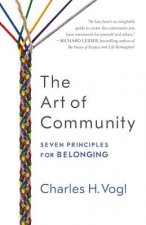
Kod: 01243472
Using Complexity Theory for Research and Program Evaluation
Autor Michael Wolf-Branigin
Complexity as a paradigm has been underutilized by social work, but this cutting-edge pocket guide makes a convincing argument for its use. Every agency worker has been faced with a deluge of records, making it difficult to grasp ... więcej
- Język:
 Angielski
Angielski - Oprawa: Miękka
- Liczba stron: 212
Wydawca: Oxford University Press Inc, 2013
- Więcej informacji o książce

Zobacz książki o podobnej tematyce
-

New English File Advanced Student's Book
247.11 zł -

Counseling LGBTQ Americans
132.68 zł -

Shooting to Kill
664.93 zł -

Painting in Canada
229.16 zł -5 % -

Trend Towards the European Deregulation of Professions and its Impact on Portugal Under Crisis
288.85 zł -

Wisdom Goddess
302.87 zł -5 % -

Perturbation Theory for the Schrödinger Operator with a Periodic Potential
288.85 zł
Bon podarunkowy: Radość gwarantowana
- Podaruj bon o dowolnej wartości, a my się zajmiemy resztą.
- Bon podarunkowy dotyczy całej naszej oferty.
- Możesz wydrukować elektroniczny bon z e-maila a następnie przekazać go obdarowanemu.
- Ważność bonu wynosi 12 miesięcy od daty wystawienia.
Więcej informacji o Using Complexity Theory for Research and Program Evaluation
Za ten zakup dostaniesz 158 punkty
 Opis
Opis
Complexity as a paradigm has been underutilized by social work, but this cutting-edge pocket guide makes a convincing argument for its use. Every agency worker has been faced with a deluge of records, making it difficult to grasp onto structures and trends undergirding behavior. Complexity theory studies the interactions of competitive and cooperative tendencies of agents such as individuals, families, groups, or communities, making the case that there is a hidden order in things that are seemingly chaotic. Exploring their interactions involves identifying a set of simple rules that the agents follow, revealing patterns that emerge without a predetermined template. Readers will learn how to frame their research using the components found in complex systems by using their existing knowledge of research methods and applying basic mathematical concepts. Concepts such as bordering between chaos and equilibrium, diverse perspectives, diverse heuristics, robustness, and wisdom of crowds are considered and applied to social work research studies. Basic introductions on game theory, graph theory, Boolean logic, decision theory, and network science provide the necessary mathematical background for understanding interconnectedness and networking. The next part of the book is a hands-on guide to the agent-based modeling software NetLogo. By inputting initial parameters and rules, the outputted models provide valuable information for visualizing unintended consequences, including how conflict can foster cooperation and how threats to a social network can improve the network's robustness and resiliency. The result is both a user-friendly introduction to using complexity theory in a socio-environmental context and a framework that provides an overarching structure for investigating process, outcomes, and the collective behavior of groups.
 Szczegóły książki
Szczegóły książki
Kategoria Książki po angielsku Society & social sciences Sociology & anthropology Sociology
270.81 zł
- Pełny tytuł: Using Complexity Theory for Research and Program Evaluation
- Autor: Michael Wolf-Branigin
- Język:
 Angielski
Angielski - Oprawa: Miękka
- Liczba stron: 212
- EAN: 9780199829460
- ISBN: 0199829462
- ID: 01243472
- Wydawca: Oxford University Press Inc
- Waga: 288 g
- Wymiary: 211 × 141 × 11 mm
- Data wydania: 07. March 2013
Ulubione w innej kategorii
-

Sex at Dawn
56.65 zł -23 % -

Death and the Afterlife
84.18 zł -23 % -

Cartoon Guide to Statistics
93.76 zł -5 % -

Why Love Hurts - A Sociological Explanation
77.52 zł -2 % -

Past Mortems
42.74 zł -23 % -

Basic and Advanced Focus Groups
184.90 zł -9 % -

Fair Play Deck
83.47 zł -15 % -

Intimate Communion
69.56 zł -4 % -

Tragedy and Hope
195.99 zł -

Small Is Beautiful
47.38 zł -23 % -

More Than Two
125.72 zł -4 % -

Regretting Motherhood
69.56 zł -4 % -

Social Intelligence
61.29 zł -15 % -

True Believer
73.69 zł -5 % -

Art of Community: Seven Principles for Belonging
97.59 zł -5 % -

NINETY PERCENT OF EVERYTHING
81.56 zł -5 % -

Reassembling the Social
181.47 zł -

Family and Civilization
92.45 zł -10 % -

Book of Tea
42.94 zł -23 % -

Building and Dwelling
70.26 zł -14 % -

Constructing Grounded Theory
213.94 zł -

Surrendered Wife
47.38 zł -23 % -

Of Woman Born
73.49 zł -5 % -

Cruel Optimism
128.14 zł -

Death and the Afterlife
176.94 zł -

What Kinship Is-And Is Not
87.61 zł -12 % -

Social History of Sexual Relations in Iran
239.85 zł -

Post-Adoption Blues
76.62 zł -1 % -

Dissecting the Danchi
639.72 zł -

Birth Of A Mother
103.64 zł -

New Old Fashioned Ways
76.92 zł -

Secret Meaning of Money - How to Prevent Financial Problems from Destroying Our Most Intimate Relationships
165.44 zł -

Platform Society
172.30 zł -

Death Tourism
172.80 zł -

Braving the Wilderness
40.02 zł -15 % -

Eroticism
52.02 zł -23 % -

Marriage, a History
85.89 zł -4 % -

Bushido the Soul of Japan
48.99 zł -

Intercourse
65.93 zł -23 % -

Ideology and Utopia
79.34 zł -

Population Control
61.29 zł -23 % -

Class Ceiling
55.64 zł -10 % -

Chrysanthemum and the Sword
84.18 zł -

Smoke Gets in Your Eyes
48.99 zł -14 % -

Sociology: A Very Short Introduction
42.74 zł -23 % -

Being Mortal
52.42 zł -15 % -

Theory of the Leisure Class
52.02 zł -23 % -

Social Construction of Reality
51.91 zł -23 % -

Bushido: The Soul Of Japan
88.82 zł -23 %
zadowolonych klientów
Od roku 2008 obsłużyliśmy wielu miłośników książek, ale dla nas każdy był tym wyjątkowym.
Copyright! ©2008-24 libristo.pl Wszelkie prawa zastrzeżonePrywatnieCookies



 21 milionów książek
21 milionów książek Dostawa 10.99 zł
Dostawa 10.99 zł (32) 444 93 66 (8-15.30h)
(32) 444 93 66 (8-15.30h)